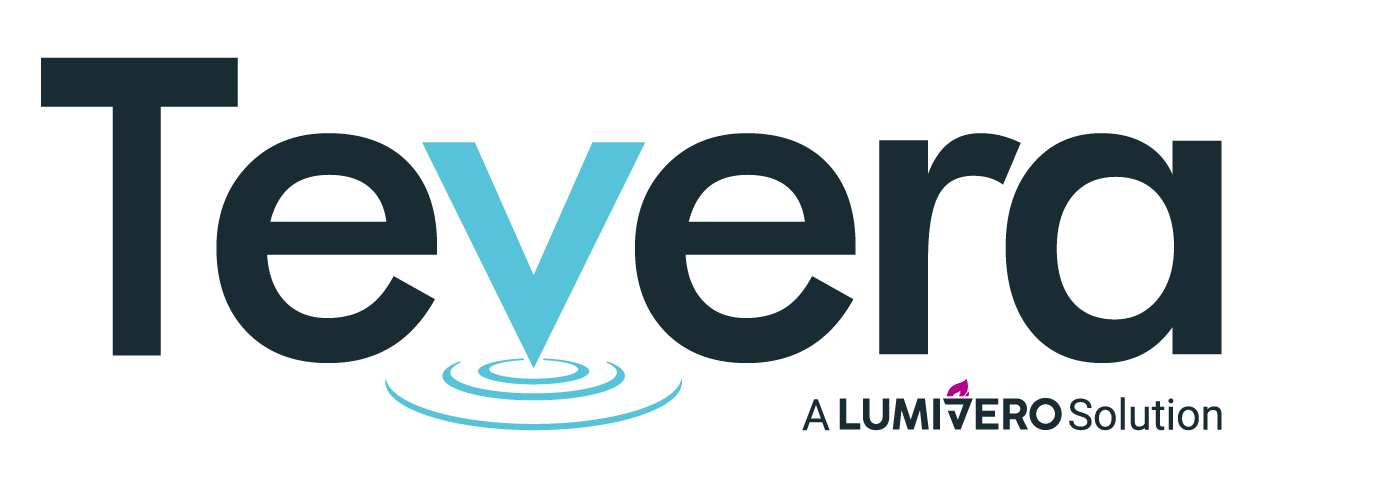CAEP Accreditation Requirements and Standards
Universities and colleges take on the mammoth task of preparing generations to take their role in society and, in turn, go on to educate others. The Council for the Accreditation of Educator Preparation (CAEP) is not only a gatekeeper, ensuring future educators have acquired the skills to perform their teaching function, but also a framework, pushing educator preparation programs to self-assess and analyze the efficacy of their programs.
In meeting CAEP accreditation requirements, higher education institutions can ensure their programs adequately prepare the student body to take their place in the workforce and continue to improve as each new generation of future educators begins their studies.
What is CAEP Accreditation?
CAEP accreditation consists of an unbiased external party reviewing colleges and schools within a higher education institution to assess the efficacy of their education preparation provider (EPP) programs. CAEP accreditation standards help ensure a degree in education is more than a piece of paper. Degrees from accredited institutions show that education students gained the necessary knowledge and practical application of this knowledge to help their future careers.
For programs seeking to provide a degree in education, CAEP accreditation ensures the educator preparation is of such quality that graduates are capable of more than disseminating information — they also have the required leadership and communication skills to manage a classroom environment.
The importance of CAEP accreditation comes with standardizing the criteria that potential educators have to meet to allow the highest quality EPPs, strengthening the profession across the country.
CAEP accreditation requirements benefit students and institutions alike. The former has access to the highest level of education in preparation for their future career. The latter has a model to focus on for continual improvement and legitimacy. When choosing where to study education, students will gravitate toward CAEP-accredited options. Employers then look for this stamp of approval in the hiring process.
CAEP Accreditation Standards and Requirements
To meet CAEP accreditation standards and requirements, higher learning institutions must undertake a detailed process so the accrediting body can determine whether they meet the requirements. Much of the accreditation process is centered around ensuring schools are focused on the continuous improvement of their programs.
Those seeking CAEP accreditation must endeavor to meet six standards. Information on these standards is plentiful and intricate, but a simple breakdown of each includes the following:
- Content and pedagogical knowledge: Programs must demonstrate that aspiring educators understand what they’re teaching and how to teach it to others effectively.
- Clinical partnerships and practice: The EPP must partner with communities and school districts to provide adequate student teaching opportunities with a view to practical experience.
- Candidate recruitment, progression and support: Candidates must be selected from a broad range of backgrounds and be of suitable quality. They must demonstrate skills suited to the teaching profession. They must also be consistently monitored and supported throughout their studies. EPPs should provide extensive records of all students and their milestone achievements.
- Program impact: This is measured after educators have finished their studies and started work in the field. Both employers and students will weigh in on how prepared candidates are for the job and whether they are satisfied with the EPP.
- Quality assurance system and continuous improvement: EPPs must provide valid and evidence-based data to support continuous improvement. There are multiple uses for the data in enhancing and innovating programs over time.
- Fiscal and administrative capacity: Facilities must have the resources to provide adequate training and opportunities for learners and the development of their programs.
Programs must demonstrate their commitment and efficacy in terms of continual improvement by submitting an annual report.
Key Benefits of CAEP Accreditation
Increased educator accountability
Growth in teacher-educator knowledge
Strong state partnerships
Elevated educator standards
What Are the Benefits of CAEP Accreditation?
Accreditation is of utmost importance to many people in the education sphere, including education professionals, K-12 teachers, state education agencies and teacher educators. It provides a framework in which EPPs can continually self-assess. The gathering of standardized evidence allows programs to change direction and further enhance their efficacy. Some of the many benefits of CAEP accreditation include:
- Increased educator accountability: As the gathered data is outcomes-based, learners play a pivotal role in determining the effectiveness of their educators across the EPP programs.
- Growth in teacher-educator knowledge: The accreditation process consists of continual improvement and research and development. The longer the program perpetuates, the broader the ability will become.
- Strong state partnerships: Accreditation can affect the educator training process nationwide.
- Elevated educator standards: The standards to receive accreditation require educators to be high-quality and professional, which has a ripple effect for generations.
How Tevera Supports College Programs in Earning and Maintaining CAEP Accreditation
Tevera assists in centralizing and streamlining program outcomes. This higher education platform helps elevate programmatic excellence for all EPP programs by tracking data and unlocking powerful insights from one central platform. The program empowers students, supervisors, faculty and leadership while relieving administrative directors of time-consuming CAEP accreditation reporting. Some of the many ways Tevera can assist and support EPP programs are:
- Standards management: You can align assessment rubrics to multiple standards, including accreditation and state-specific standards for optimal reporting on student learning outcomes.
- Student performance evaluation: Students receive direct feedback via the system’s performance evaluations from both university supervisor and cooperating teacher perspectives to improve their practice.
- Powerful reporting: Strong reporting solutions drive accreditation processes and allow your institution to develop self-assessment standards with continual improvement.
- Increased visibility of program outcomes: Elevate student achievement to ensure learners become leaders and contributors in their field.
CAEP Accreditation Reporting
For an institution of higher learning to receive and maintain CAEP accreditation, program outcomes must be reported annually. The institution must demonstrate its ability to provide students with quality education and practical experience in the field when conducting CAEP reporting.
The CAEP conducts a full review of an institution every seven to ten years to ensure it is still producing quality educators through the efficacy of its programs. Reporting allows an institution to set standards in line with CAEP standards and collect data to analyze how well students meet these goals across the entirety of the program.
What States Require CAEP Accreditation?
Many states require CAEP accreditation for EPPs. Graduates from non-accredited schools will not be granted leave to work in these states unless the provider of the educator’s program has met CAEP criteria. Some of the locations in which CAEP Accreditation is mandatory include:
- Alabama
- Alaska
- Arizona
- Arkansas
- California
- Connecticut
- Delaware
- Hawaii
- Idaho
- Indiana
- Kansas
- Kentucky
- Louisiana
- Maine
- Michigan
- Mississippi
- Missouri
- Montana
- Nebraska
- New Hampshire
- New Jersey
- New York
- North Carolina
- North Dakota
- Ohio
- Oklahoma
- Oregon
- South Carolina
- South Dakota
- Tennessee
- Virginia
- Washington, D.C.
- West Virginia
Simplify CAEP Accreditation With Tevera
Tevera will help you centralize and streamline your data, supervise students and accomplish administrative tasks in a fraction of the expected time.
Our assistance in uncomplicated program management helps everyone from the dean to the students, faculty and university supervisors, and cooperating teachers. Students’ needs are at the heart of everything. With Tevera’s help, you can ensure the most meaningful outcomes for the next generation of education professionals. Learn more about how we can elevate your field experiences and help unlock valuable insights for your program. Schedule a 60-minute overview today.
Interested in Learning About Other Accreditation Bodies Tevera Supports?
SOLUTIONS
RELATED POSTS
PRODUCT OVERVIEW
See how Tevera can elevate your program.
CAEP Accreditation Requirements and Standards
Universities and colleges take on the mammoth task of preparing generations to take their role in society and, in turn, go on to educate others. The Council for the Accreditation of Educator Preparation (CAEP) is not only a gatekeeper, ensuring future educators have acquired the skills to perform their teaching function, but also a framework, pushing educator preparation programs to self-assess and analyze the efficacy of their programs.
In meeting CAEP accreditation requirements, higher education institutions can ensure their programs adequately prepare the student body to take their place in the workforce and continue to improve as each new generation of future educators begins their studies.
What is CAEP Accreditation?
CAEP accreditation consists of an unbiased external party reviewing colleges and schools within a higher education institution to assess the efficacy of their education preparation provider (EPP) programs. CAEP accreditation standards help ensure a degree in education is more than a piece of paper. Degrees from accredited institutions show that education students gained the necessary knowledge and practical application of this knowledge to help their future careers.
For programs seeking to provide a degree in education, CAEP accreditation ensures the educator preparation is of such quality that graduates are capable of more than disseminating information — they also have the required leadership and communication skills to manage a classroom environment.
The importance of CAEP accreditation comes with standardizing the criteria that potential educators have to meet to allow the highest quality EPPs, strengthening the profession across the country.
CAEP accreditation requirements benefit students and institutions alike. The former has access to the highest level of education in preparation for their future career. The latter has a model to focus on for continual improvement and legitimacy. When choosing where to study education, students will gravitate toward CAEP-accredited options. Employers then look for this stamp of approval in the hiring process.
CAEP Accreditation Standards and Requirements
To meet CAEP accreditation standards and requirements, higher learning institutions must undertake a detailed process so the accrediting body can determine whether they meet the requirements. Much of the accreditation process is centered around ensuring schools are focused on the continuous improvement of their programs.
Those seeking CAEP accreditation must endeavor to meet six standards. Information on these standards is plentiful and intricate, but a simple breakdown of each includes the following:
- Content and pedagogical knowledge: Programs must demonstrate that aspiring educators understand what they’re teaching and how to teach it to others effectively.
- Clinical partnerships and practice: The EPP must partner with communities and school districts to provide adequate student teaching opportunities with a view to practical experience.
- Candidate recruitment, progression and support: Candidates must be selected from a broad range of backgrounds and be of suitable quality. They must demonstrate skills suited to the teaching profession. They must also be consistently monitored and supported throughout their studies. EPPs should provide extensive records of all students and their milestone achievements.
- Program impact: This is measured after educators have finished their studies and started work in the field. Both employers and students will weigh in on how prepared candidates are for the job and whether they are satisfied with the EPP.
- Quality assurance system and continuous improvement: EPPs must provide valid and evidence-based data to support continuous improvement. There are multiple uses for the data in enhancing and innovating programs over time.
- Fiscal and administrative capacity: Facilities must have the resources to provide adequate training and opportunities for learners and the development of their programs.
Programs must demonstrate their commitment and efficacy in terms of continual improvement by submitting an annual report.
Key Benefits of CAEP Accreditation
Increased educator accountability
Growth in teacher-educator knowledge
Strong state partnerships
Elevated educator standards
What Are the Benefits of CAEP Accreditation?
Accreditation is of utmost importance to many people in the education sphere, including education professionals, K-12 teachers, state education agencies and teacher educators. It provides a framework in which EPPs can continually self-assess. The gathering of standardized evidence allows programs to change direction and further enhance their efficacy. Some of the many benefits of CAEP accreditation include:
- Increased educator accountability: As the gathered data is outcomes-based, learners play a pivotal role in determining the effectiveness of their educators across the EPP programs.
- Growth in teacher-educator knowledge: The accreditation process consists of continual improvement and research and development. The longer the program perpetuates, the broader the ability will become.
- Strong state partnerships: Accreditation can affect the educator training process nationwide.
- Elevated educator standards: The standards to receive accreditation require educators to be high-quality and professional, which has a ripple effect for generations.
How Tevera Supports College Programs in Earning and Maintaining CAEP Accreditation
Tevera assists in centralizing and streamlining program outcomes. This higher education platform helps elevate programmatic excellence for all EPP programs by tracking data and unlocking powerful insights from one central platform. The program empowers students, supervisors, faculty and leadership while relieving administrative directors of time-consuming CAEP accreditation reporting. Some of the many ways Tevera can assist and support EPP programs are:
- Standards management: You can align assessment rubrics to multiple standards, including accreditation and state-specific standards for optimal reporting on student learning outcomes.
- Student performance evaluation: Students receive direct feedback via the system’s performance evaluations from both university supervisor and cooperating teacher perspectives to improve their practice.
- Powerful reporting: Strong reporting solutions drive accreditation processes and allow your institution to develop self-assessment standards with continual improvement.
- Increased visibility of program outcomes: Elevate student achievement to ensure learners become leaders and contributors in their field.
CAEP Accreditation Reporting
For an institution of higher learning to receive and maintain CAEP accreditation, program outcomes must be reported annually. The institution must demonstrate its ability to provide students with quality education and practical experience in the field when conducting CAEP reporting.
The CAEP conducts a full review of an institution every seven to ten years to ensure it is still producing quality educators through the efficacy of its programs. Reporting allows an institution to set standards in line with CAEP standards and collect data to analyze how well students meet these goals across the entirety of the program.
What States Require CAEP Accreditation?
Many states require CAEP accreditation for EPPs. Graduates from non-accredited schools will not be granted leave to work in these states unless the provider of the educator’s program has met CAEP criteria. Some of the locations in which CAEP Accreditation is mandatory include:
- Alabama
- Alaska
- Arizona
- Arkansas
- California
- Connecticut
- Delaware
- Hawaii
- Idaho
- Indiana
- Kansas
- Kentucky
- Louisiana
- Maine
- Michigan
- Mississippi
- Missouri
- Montana
- Nebraska
- New Hampshire
- New Jersey
- New York
- North Carolina
- North Dakota
- Ohio
- Oklahoma
- Oregon
- South Carolina
- South Dakota
- Tennessee
- Virginia
- Washington, D.C.
- West Virginia
Simplify CAEP Accreditation With Tevera
Tevera will help you centralize and streamline your data, supervise students and accomplish administrative tasks in a fraction of the expected time.
Our assistance in uncomplicated program management helps everyone from the dean to the students, faculty and university supervisors, and cooperating teachers. Students’ needs are at the heart of everything. With Tevera’s help, you can ensure the most meaningful outcomes for the next generation of education professionals. Learn more about how we can elevate your field experiences and help unlock valuable insights for your program. Schedule a 60-minute overview today.
Interested in Learning About Other Accreditation Bodies Tevera Supports?
CAEP Accreditation Requirements and Standards
Universities and colleges take on the mammoth task of preparing generations to take their role in society and, in turn, go on to educate others. The Council for the Accreditation of Educator Preparation (CAEP) is not only a gatekeeper, ensuring future educators have acquired the skills to perform their teaching function, but also a framework, pushing educator preparation programs to self-assess and analyze the efficacy of their programs.
In meeting CAEP accreditation requirements, higher education institutions can ensure their programs adequately prepare the student body to take their place in the workforce and continue to improve as each new generation of future educators begins their studies.
What is CAEP Accreditation?
CAEP accreditation consists of an unbiased external party reviewing colleges and schools within a higher education institution to assess the efficacy of their education preparation provider (EPP) programs. CAEP accreditation standards help ensure a degree in education is more than a piece of paper. Degrees from accredited institutions show that education students gained the necessary knowledge and practical application of this knowledge to help their future careers.
For programs seeking to provide a degree in education, CAEP accreditation ensures the educator preparation is of such quality that graduates are capable of more than disseminating information — they also have the required leadership and communication skills to manage a classroom environment.
The importance of CAEP accreditation comes with standardizing the criteria that potential educators have to meet to allow the highest quality EPPs, strengthening the profession across the country.
CAEP accreditation requirements benefit students and institutions alike. The former has access to the highest level of education in preparation for their future career. The latter has a model to focus on for continual improvement and legitimacy. When choosing where to study education, students will gravitate toward CAEP-accredited options. Employers then look for this stamp of approval in the hiring process.
CAEP Accreditation Standards and Requirements
To meet CAEP accreditation standards and requirements, higher learning institutions must undertake a detailed process so the accrediting body can determine whether they meet the requirements. Much of the accreditation process is centered around ensuring schools are focused on the continuous improvement of their programs.
Those seeking CAEP accreditation must endeavor to meet six standards. Information on these standards is plentiful and intricate, but a simple breakdown of each includes the following:
- Content and pedagogical knowledge: Programs must demonstrate that aspiring educators understand what they’re teaching and how to teach it to others effectively.
- Clinical partnerships and practice: The EPP must partner with communities and school districts to provide adequate student teaching opportunities with a view to practical experience.
- Candidate recruitment, progression and support: Candidates must be selected from a broad range of backgrounds and be of suitable quality. They must demonstrate skills suited to the teaching profession. They must also be consistently monitored and supported throughout their studies. EPPs should provide extensive records of all students and their milestone achievements.
- Program impact: This is measured after educators have finished their studies and started work in the field. Both employers and students will weigh in on how prepared candidates are for the job and whether they are satisfied with the EPP.
- Quality assurance system and continuous improvement: EPPs must provide valid and evidence-based data to support continuous improvement. There are multiple uses for the data in enhancing and innovating programs over time.
- Fiscal and administrative capacity: Facilities must have the resources to provide adequate training and opportunities for learners and the development of their programs.
Programs must demonstrate their commitment and efficacy in terms of continual improvement by submitting an annual report.
Key Benefits of CAEP Accreditation
Increased educator accountability
Growth in teacher-educator knowledge
Strong state partnerships
Elevated educator standards
What Are the Benefits of CAEP Accreditation?
Accreditation is of utmost importance to many people in the education sphere, including education professionals, K-12 teachers, state education agencies and teacher educators. It provides a framework in which EPPs can continually self-assess. The gathering of standardized evidence allows programs to change direction and further enhance their efficacy. Some of the many benefits of CAEP accreditation include:
- Increased educator accountability: As the gathered data is outcomes-based, learners play a pivotal role in determining the effectiveness of their educators across the EPP programs.
- Growth in teacher-educator knowledge: The accreditation process consists of continual improvement and research and development. The longer the program perpetuates, the broader the ability will become.
- Strong state partnerships: Accreditation can affect the educator training process nationwide.
- Elevated educator standards: The standards to receive accreditation require educators to be high-quality and professional, which has a ripple effect for generations.
How Tevera Supports College Programs in Earning and Maintaining CAEP Accreditation
Tevera assists in centralizing and streamlining program outcomes. This higher education platform helps elevate programmatic excellence for all EPP programs by tracking data and unlocking powerful insights from one central platform. The program empowers students, supervisors, faculty and leadership while relieving administrative directors of time-consuming CAEP accreditation reporting. Some of the many ways Tevera can assist and support EPP programs are:
- Standards management: You can align assessment rubrics to multiple standards, including accreditation and state-specific standards for optimal reporting on student learning outcomes.
- Student performance evaluation: Students receive direct feedback via the system’s performance evaluations from both university supervisor and cooperating teacher perspectives to improve their practice.
- Powerful reporting: Strong reporting solutions drive accreditation processes and allow your institution to develop self-assessment standards with continual improvement.
- Increased visibility of program outcomes: Elevate student achievement to ensure learners become leaders and contributors in their field.
CAEP Accreditation Reporting
For an institution of higher learning to receive and maintain CAEP accreditation, program outcomes must be reported annually. The institution must demonstrate its ability to provide students with quality education and practical experience in the field when conducting CAEP reporting.
The CAEP conducts a full review of an institution every seven to ten years to ensure it is still producing quality educators through the efficacy of its programs. Reporting allows an institution to set standards in line with CAEP standards and collect data to analyze how well students meet these goals across the entirety of the program.
What States Require CAEP Accreditation?
Many states require CAEP accreditation for EPPs. Graduates from non-accredited schools will not be granted leave to work in these states unless the provider of the educator’s program has met CAEP criteria. Some of the locations in which CAEP Accreditation is mandatory include:
- Alabama
- Alaska
- Arizona
- Arkansas
- California
- Connecticut
- Delaware
- Hawaii
- Idaho
- Indiana
- Kansas
- Kentucky
- Louisiana
- Maine
- Michigan
- Mississippi
- Missouri
- Montana
- Nebraska
- New Hampshire
- New Jersey
- New York
- North Carolina
- North Dakota
- Ohio
- Oklahoma
- Oregon
- South Carolina
- South Dakota
- Tennessee
- Virginia
- Washington, D.C.
- West Virginia
Simplify CAEP Accreditation With Tevera
Tevera will help you centralize and streamline your data, supervise students and accomplish administrative tasks in a fraction of the expected time.
Our assistance in uncomplicated program management helps everyone from the dean to the students, faculty and university supervisors, and cooperating teachers. Students’ needs are at the heart of everything. With Tevera’s help, you can ensure the most meaningful outcomes for the next generation of education professionals. Learn more about how we can elevate your field experiences and help unlock valuable insights for your program. Schedule a 60-minute overview today.





















